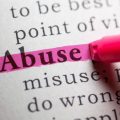
Children will not get the protection they deserve from the government’s response to the Independent Inquiry into Child Sexual Abuse (IICSA), its chair has warned.
Alexis Jay said she was “deeply disappointed” that the government had not accepted the inquiry’s recommendations in full, following ministers’ response, issued last week.
Her comments, in a joint statement with an expert panel representing survivors, were echoed by The Survivors Trust (TST), the umbrella body for specialist sexual abuse services. It said ministers had shown “no real commitment to enact any of the 20 recommendations needed for system reform to protect our children today”.
Home secretary Suella Braverman said that the government had “accepted the need to act on all but one of the inquiry’s [20] recommendations”, demonstrating how seriously it took IICSA’s findings, in her foreword to the response.
Government response to CSA recommendations
However, in several cases, the government effectively rejected the inquiry’s specific recommendation, claiming the essence of the proposal would be met by existing systems, planned reforms or potential future changes.
For example, it said it would not create a Child Protection Authority to be a centre of expertise for agencies and government and to fill gaps in existing inspection systems in England, as IICSA had recommended.
This was on the basis that many of its proposed functions already existed in statutory or non-statutory bodies, such as the Child Safeguarding Practice Review Panel, which reviews learning from serious child protection cases.
However, the inquiry found “a lack of focus and rigour in the responses of a wide range of settings and institutions” to CSA, indicating that the multiplicity of organisations involved in monitoring child protection was problematic.
And while the government said it would consider widening the panel’s remit to, it said it saw it taking on just “some of the additional protections described in the inquiry’s final report”.
Financial redress scheme for survivors
With other recommendations, the government pledged to review or consult on arrangements with a view to potentially implementing IICSA’s proposals or similar, but with no timescale.
This was the case with its response to the inquiry’s proposal for a single financial redress scheme, lasting five years, for victims of institutional child sexual abuse or exploitation. The government said it would introduce a redress scheme following “extensive engagement” on the nature of the scheme, though without setting a timeframe for this.
As we reported last month, the government has accepted IICSA’s headline recommendation, to introduce mandatory reporting of CSA in England, but has not committed to implementing the inquiry’s model for doing so.
This would involve requiring staff working with children, or those in a position of trust over them, to report CSA to the relevant council or police force whenever they received a disclosure from a victim or perpetrator, witnessed abuse or observed recognised indicators of the crime. It would be a criminal offence for them not to report abuse that they witnessed or received a disclosure about.
Mandatory reporting call for evidence
As it pledged last month, the government has launched a call for evidence on mandatory reporting, running until 14 August 2023, which will be a prelude to a public consultation on specific proposals due later this year.
In this, the government questioned aspects of the inquiry’s recommendation, saying that the introduction of criminal sanctions for a failure to report “may not be proportionate, for example, if existing offences could already be applied to address breaches of the duty”.
During its seven-year lifespan, the inquiry undertook 15 investigations, produced 52 reports, took written evidence from almost 1,000 people, heard oral evidence from more than 700 people over 325 public hearing days and received contributions from over 6,200 victims and survivors through its Truth Project.
This is what had informed the 20 recommendations, said Jay and the Victims and Survivors Consultative Panel (VSCP), whose members, collectively, have over 100 years’ experience providing specialist support to CSA victims.
Inquiry chair ‘deeply disappointed’
“These recommendations were a carefully considered set of measures, designed to complement each other to provide a comprehensive world-class framework for the protection of children,” their statement read.
“We are deeply disappointed that the government has not accepted the full package of recommendations made in the final report. In some instances, the government has stated that a number of them will be subject to consultations, despite the extensive research and evidence-taking which the inquiry carried out over seven years.”
Speaking subsequently to BBC Woman’s Hour, Jay described several of the government’s responses to the inquiry’s proposals as “vague, unspecific and without a timeline” and said that they “frequently did not address the issues contained in the recommendations”.
Jay, a former social worker who also led the inquiry into child sexual exploitation in Rotherham that reported in 2014, urged ministers to “think again” and to “enact all of our recommendations in full without delay”.
? ‘I call on the government to think again’
Professor Alexis Jay, who chaired the Independent Inquiry into Child Sexual Abuse for seven years, tells @BBCNuala that she feels ‘deep disappointment’ with the government response to the final report.
Listen on @bbcsounds ⬇️
— BBC Woman’s Hour (@BBCWomansHour) May 24, 2023
Mandatory reporting ‘unnecessarily delayed’
The Survivors Trust (TST) said that the government’s response “lacked the detail and immediate action required to generate a much-needed culture change around how we as a society respond to child sexual abuse”.
On mandatory reporting, it said the call for evidence was “an unnecessary delay as there have been multiple consultations, as well as seven years of evidence gathering through IICSA that set out how to implement mandatory reporting effectively and safely”.
Mandate Now, a campaign for mandatory reporting, previously warned that IICSA’s own proposals would make little difference without a criminal sanction on not reporting recognised indicators of CSA
However, it said the government’s consultation appeared “intended to provide an excuse for the government to do less rather than more, to implement something which can be called “mandatory reporting” but which lacks the essential features to make it effective”.
Risk of overwhelming services – ADCS
The Association of Directors of Children’s Services (ADCS), meanwhile, said it was unconvinced of the case for mandatory reporting.
Currently, the evidence does not suggest this offers greater protections for children or improves their outcomes, however, it could have the unintended consequence of overwhelming local services requiring a pivot away from the provision of help and support to assessment and investigation,” said ADCS president John Pearce.
“We believe the most common reason people do not report abuse and neglect is because they don’t recognise it for what it is. We need to ensure all professionals, and communities, are aware of the signs of child abuse and how best to raise concerns with the appropriate agency.”
This theme was picked up by Centre of expertise on child sexual abuse, which welcomed the government’s response but highlighted the lack of focus on improving practitioners’ skills in tackling CSA.
‘Lack of focus on improving skills’
“Based on our conservative estimates, one in ten children will experience some form of sexual abuse before the age of 16 in England and Wales,” said CSA Centre director Ian Dean.
“Yet core training for professionals working with children still routinely fails to cover identifying and responding to child sexual abuse, and action to address this was notably absent in today’s announcements. We need to ensure that all professionals with safeguarding roles – including social workers, teachers, police officers, GPs etc. are properly trained and supported to have the knowledge, skills and confidence to better protect children.”






 A trauma-informed approach to social work: practice tips
A trauma-informed approach to social work: practice tips  Problem gambling: how to recognise the warning signs
Problem gambling: how to recognise the warning signs 




 Find out how to develop your emotional resilience with our free downloadable guide
Find out how to develop your emotional resilience with our free downloadable guide  Develop your social work career with Community Care’s Careers and Training Guide
Develop your social work career with Community Care’s Careers and Training Guide  ‘Dear Sajid Javid: please end the inappropriate detention of autistic people and those with learning disabilities’
‘Dear Sajid Javid: please end the inappropriate detention of autistic people and those with learning disabilities’ Ofsted calls for power to scrutinise children’s home groups
Ofsted calls for power to scrutinise children’s home groups Seven in eight commissioners paying below ‘minimum rate for home care’
Seven in eight commissioners paying below ‘minimum rate for home care’
 Facebook
Facebook X
X LinkedIn
LinkedIn Instagram
Instagram
Comments are closed.